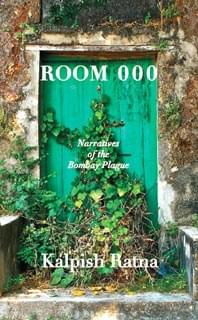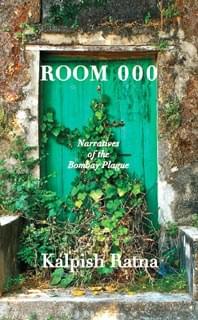Magazine
In Sickness, In Health
Antara Das
Apr 09, 2015, 01:41 AM | Updated Feb 11, 2016, 09:03 AM IST
Save & read from anywhere!
Bookmark stories for easy access on any device or the Swarajya app.


A non-fictional account of the Bombay Plague of 1896 brings to life, personalities and events forgotten by the passage of time.
The central poignant theme of Room 000: Narratives of the Bombay Plague is introduced quite early in the book, as a part of its prologue. If you’re reading in a hurry, you might almost miss it, so unobtrusive is the sentence, so lacking the baroque grandeur otherwise evident in the rest of the book.
The narrator talks about his alma mater, Mumbai’s Grant Medical College at Byculla and the pioneering role that institution played in hosting medical discoveries that shaped the history of the nation. But honouring the spirit of the past, in deeds and not just words, is not exactly our forte. Says the narrator: “Like the rest of the nation, Grant Medical College prided itself on a past it knew nothing about.”
Resurrecting some of that past, the lost power and the unsung glory, forms the subject matter of this book.
That we are uncomfortable in engaging with our history as it stands, is also evident in the way the book is packaged. The blurb on the book jacket at the back reinforces how this is but a racy thriller, how the story of some forgotten scientists struggling to isolate and identify unknown bacilli is quite like detectives chasing down a culprit. In case the reader is still not convinced, the blurb ends on the note that the forgotten lessons from the 1896 Bombay Plague are relevant even today, in the context of new forms of epidemic outbreaks all around.
The relevance is not in doubt, but even without that hint at utility, the book’s purpose is well served. It sheds light at those intersections where scientific endeavour comes across the fear of the unknown, and where ham-handed colonialism faces off with the distrust of the colonised.
Kalpish Ratna, the near-anagram of the names of the writer-duo Ishrat Syed and Kalpana Swaminathan, are not new to the subject of the 1896 plague. Their 2010 novel The Quarantine Papers, had made use of this material, juxtaposing it with the communal riots in the aftermath of the Babri Masjid demolition to capture the convulsive fears of a stricken city.
But Room 000, as a work of narrative non-fiction, steps into the heart of the matter, into the very room which had served as the scientific frontier in the battle to find a cure for bubonic plague. If one ignores the somewhat contrived opening—the voices from the past reaching out to the narrator—then the narrative is sure to compel one’s interest both by the breadth of its expanse and its tone of ominous intrigue.
Room 000 provides detailed footnotes to add historical authenticity to the pioneering figures who played an important role in battling the outbreak of plague. A diverse cross-section is profiled: from scientists like Ernest Hankin to Waldemar Haffkine, Dr Accacio Viegas who detected the first case of plague at Mandvi, medical practitioners forgotten with the passage of time like Dr Ismail Jan Mohammad, those entrusted with civic responsibilities like Commissioner Bombay Municipality P.H.C. Snow to Dr Sir Nusserwanji Choksy, a physician in charge of the Arthur Road Hospital and Mahratta Hospital through four epidemics of plague.
The photographic plates provided at the end of the book serve as a stark reminder of the obscurity that has engulfed these characters now: Arthur Road Hospital with a ward named after Dr Choksy with the paint peeling off the signage, a statue of Dr Viegas with bird droppings encrusting his head.
Kalpish Ratna’s language bears the burden of excess, which is a pity, since they seem to have such an interesting story to tell. Comparing a cluster of bikes and scooters (in a present-day scenario) with “trilobites preparing to fossilize” shows a lack of control that is difficult to explain away in a collaborative effort on such an ambitious scale.
But ornate sentences aside, the narrative is human and touching, covering varied aspects, like the general anti-Semitic distrust displayed towards the brilliant Odessa-born Haffkine, the frustration of Indian doctors not treated at par with their European counterparts and the comic pathos of a population gripped by a disease they can barely understand. For a peek into that cosmopolitan melting pot alone, this book deserves a read.
Antara Das is the Books and Culture Editor of Swarajya




